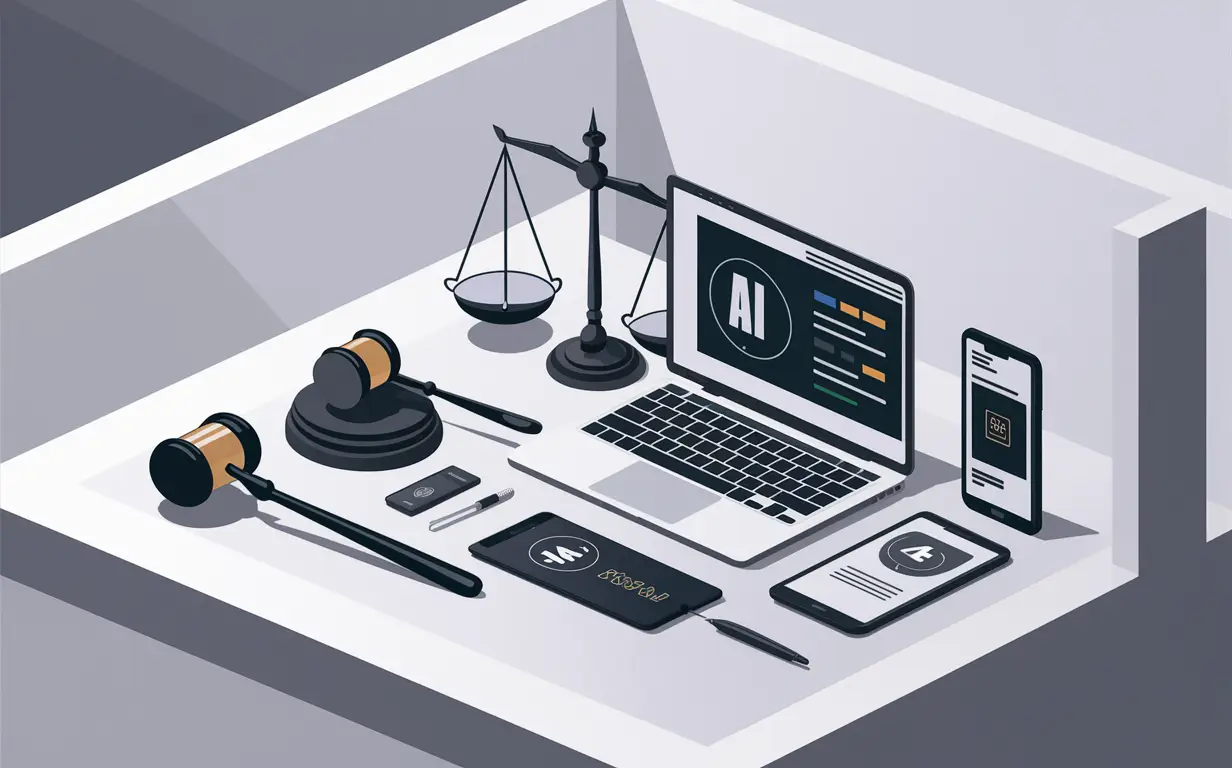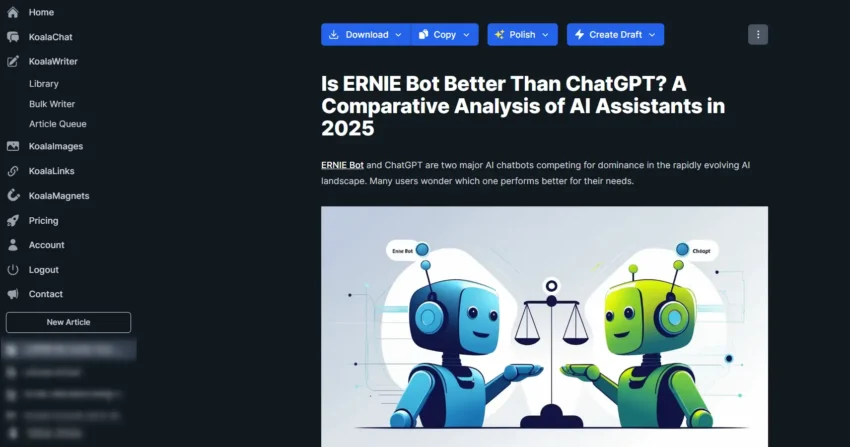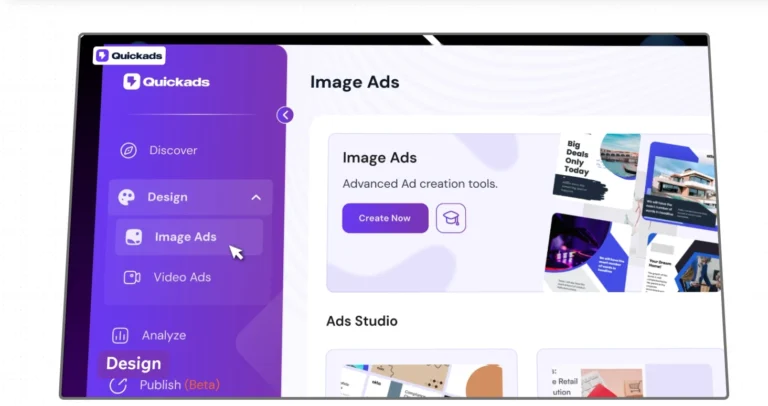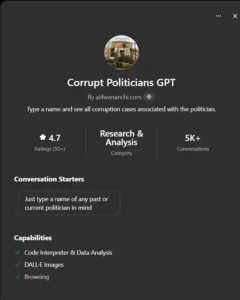Legal AI tools are changing how lawyers work.
These tools help with tasks like reviewing contracts, finding important information, and predicting case outcomes. They save time and boost accuracy.
AI-powered legal tools can make lawyers more efficient and effective in their work. By automating routine tasks, lawyers can focus on higher-level strategy and client service. This technology is becoming a must-have for competitive law firms.
AI legal assistants are getting smarter every day. They can now handle complex legal research, draft documents, and even suggest arguments for cases. As these tools improve, they’re likely to become an essential part of every lawyer’s toolkit.
1) CaseText
CaseText is a powerful AI-powered legal research tool that’s changing how lawyers work. It uses advanced technology to make finding relevant case law and statutes much faster and easier.
You can quickly search through millions of legal documents with CaseText. Its AI understands the context of your queries and finds on-point results.
One of CaseText’s best features is CARA AI. This tool analyzes your legal documents and suggests relevant cases you might have missed. It’s like having a super-smart research assistant.
CaseText also offers Compose, an AI writing aid. It helps you draft legal documents by suggesting relevant language and citations. This can save you hours of work.
The platform is always improving. It learns from how lawyers use it, getting smarter over time. This means your research gets more efficient the more you use it.
CaseText integrates well with other legal software. You can easily export your research and collaborate with other lawyers on cases.
Pricing is flexible, with plans for solo practitioners up to large firms. Many lawyers find the time savings well worth the cost.
2) Ross Intelligence
Ross Intelligence is a cutting-edge AI tool for lawyers. It uses natural language processing to help you research cases faster and more efficiently.
With Ross, you can ask legal questions in plain English. The AI then searches through millions of documents to find relevant cases and laws.
Ross doesn’t just give you a list of results. It provides summaries of key points and explains how they relate to your query. This saves you hours of reading time.
The tool also keeps track of new court decisions. It alerts you when there are updates that might affect your cases.
Ross works well for many types of law. It covers areas like bankruptcy, intellectual property, and labor law.
You can use Ross on your computer or phone. This lets you do research anywhere, anytime.
One of Ross’s best features is its ability to learn. The more you use it, the better it gets at understanding your needs.
3) JuryScope
JuryScope is an AI tool that helps lawyers pick the best jurors for their cases. It uses data and smart algorithms to predict how potential jurors might think and act.
You can use JuryScope to analyze juror questionnaires quickly. It looks at things like a juror’s background, opinions, and social media posts.
The tool gives you a risk score for each juror. This score shows how likely they are to favor your case. It also suggests questions to ask during jury selection.
JuryScope can save you a lot of time. Instead of spending hours reading through juror forms, you get insights in minutes. This lets you focus on building your case strategy.
The AI learns from past cases and keeps getting smarter. It spots patterns that humans might miss. This can give you an edge in court.
Remember, JuryScope is a helper, not a replacement for your judgment. You still make the final choices about who to keep or strike from the jury.
AI-powered jury selection is changing how lawyers work. It’s making the process faster and more data-driven.
4) Blue J Legal
Blue J Legal is a powerful AI tool for lawyers in 2025. It focuses on tax and employment law analysis. The software uses machine learning to predict legal outcomes with high accuracy.
You can input case details into Blue J Legal’s system. It then analyzes thousands of past cases and laws. This helps you get insights fast.
The tool is great for tax lawyers. It can predict how courts might rule on complex tax issues. This saves you time and improves your advice to clients.
For employment lawyers, Blue J Legal is also useful. It helps with questions about worker classification and discrimination claims. You get quick, data-backed answers to tricky legal questions.
Blue J Legal’s interface is user-friendly. You don’t need to be a tech expert to use it. The tool gives clear explanations for its predictions, which you can easily share with clients.
Pricing for Blue J Legal varies based on your needs. You can choose between different plans. This makes it a good option for both small and large law firms.
5) Luminance
Luminance is a powerful AI tool that can transform your legal practice. It uses advanced machine learning to analyze legal documents quickly and accurately.
You can use Luminance to review contracts, due diligence, and compliance documents. It spots key clauses, risks, and anomalies that you might miss.
The tool learns from your work, getting smarter over time. This means it adapts to your specific needs and preferences as you use it more.
Luminance shines in big projects. It can process thousands of documents in minutes, saving you countless hours of manual review.
You’ll find the interface user-friendly and intuitive. Even if you’re not tech-savvy, you can start using Luminance with minimal training.
The tool offers real-time collaboration features. This makes it easy to work with your team on complex cases, no matter where they are.
Luminance also provides clear visualizations of document data. This helps you spot patterns and insights that might not be obvious from reading alone.
6) Amto
Amto uses AI to help you create contracts, emails, letters, and templates. You can draft service agreements, work-for-hire contracts, and real estate documents with a consistent tone. T
he tool allows instant revisions by highlighting text and entering instructions. It also suggests missing clauses and flags gaps in legal research.
7) Lex Machina
Lex Machina is a powerful legal analytics platform that’s changing how lawyers work. It uses AI to look at court data and help predict case outcomes.
You can use Lex Machina to see patterns in past cases. This helps you make better choices about your current cases.
The tool shows you things like how long cases usually take, which judges tend to rule in certain ways, and what strategies other lawyers have used successfully.
Lex Machina covers many areas of law. It can help with patent cases, commercial lawsuits, and more.
You’ll find it easier to plan your case strategy with this tool. It gives you data-backed insights that you might miss on your own.
Lex Machina also helps you research opposing counsel and parties. You can see their track records and understand their typical approaches.
By using Lex Machina, you can give your clients more accurate advice about their chances in court. This can help set realistic expectations from the start.
Other AI tools for legal usecases
8) Legal content summarizer
Detangle.ai simplifies complex legal content. You can upload audio, video, or text files, and the AI summarizes them. It transforms legal jargon into plain English, making it easier to digest lengthy research or complex documents.
9) Data room provider
Ansarada offers AI-powered data rooms for mergers, acquisitions, and other deals. You can use it to manage due diligence, track deal progress, and analyze bidder engagement.
The platform provides insights into document access and user behavior, helping you make informed decisions during transactions.
10) Legal research assistant
AI Lawyer helps you conduct efficient legal research. You can input case details or legal questions, and the AI provides relevant case law, statutes, and legal opinions.
It saves you time by quickly identifying pertinent information from vast legal databases.
11) Patent application helper
PatentPal assists with patent applications using AI. You can draft patent claims, generate descriptions, and check for potential conflicts.
The tool helps ensure your applications meet legal requirements and formatting standards, streamlining the patent filing process.
12) Document Analysis tool
Humata AI analyzes legal documents and extracts key information. You can upload contracts, agreements, or legal briefs, and the AI will identify important clauses, potential risks, and areas needing attention. It helps you quickly grasp the essence of complex documents.
Benefits of legal AI tools
Legal AI tools offer game-changing advantages for lawyers. These tools boost productivity, enhance accuracy, and cut costs in legal practices.
Increased efficiency
AI tools speed up many time-consuming legal tasks.
Document review software can scan thousands of pages in minutes, flagging key info for lawyers. This cuts review time by up to 80%.
Contract analysis tools spot issues fast, saving hours of manual review. AI can also draft routine documents like NDAs in seconds, freeing up lawyers for complex work.
Legal research platforms use AI to find relevant cases quickly. You input a few facts, and the AI suggests matching precedents. This slashes research time from days to hours.
Improved accuracy
AI tools boost precision in legal work. They don’t get tired or distracted like humans, leading to fewer mistakes in document review and contract analysis.
AI-powered proofreading tools catch errors humans might miss. They flag inconsistencies in legal documents, reducing the risk of costly mistakes.
Machine learning improves over time. As you use these tools, they learn your preferences and get even more accurate. This leads to better outcomes for your clients.
Cost reduction
Legal AI tools can slash expenses for law firms. By automating routine tasks, you need fewer billable hours to complete projects. This saves your clients money and makes your firm more competitive.
AI research tools cut down on expensive database subscriptions. They find relevant info faster, reducing the time spent on costly research platforms.
These tools also lower the risk of errors that could lead to malpractice suits. By improving accuracy, they help protect your firm from costly legal battles.
Key features to look for in legal AI tools
When choosing AI tools for your law practice, certain features can make a big difference. These features help you work faster, smarter, and more efficiently.
Natural language processing (NLP) capabilities
NLP is a key part of legal AI tools. It helps machines understand and process human language. This is crucial for legal work, which often involves complex texts.
Good NLP can help you:
- Find relevant cases and laws quickly
- Summarize long documents
- Extract key information from contracts
LegalRobot uses NLP for contract review and risk assessment. This saves you time and helps catch issues you might miss.
Look for tools that can handle legal jargon and complex sentence structures. The best ones can even understand context and nuance in legal texts.
Integration with existing software
Your AI tools should work well with the software you already use. This makes your workflow smoother and saves time.
Key things to consider:
- Does it integrate with your case management system?
- Can it work with your document storage solution?
- Does it play nice with your billing software?
CSDisco offers fast data processing that works well with other legal tools. This kind of seamless integration can boost your productivity.
Choose tools that fit into your current setup without major changes. This makes adoption easier for you and your team.
Scalability
As your practice grows, your AI tools should grow with you. Scalable tools can handle more work without slowing down.
Look for:
- Cloud-based solutions that can expand easily
- Tools that can handle large volumes of data
- Flexible pricing that adjusts to your usage
Casetext is an AI-driven platform that can scale to meet your needs. It gives you access to wide legal databases, growing with your practice.
Pick tools that can keep up as your caseload increases. This ensures you won’t outgrow your tech investment too quickly.
Common questions about AI tools for lawyers

Top AI tools for legal professionals
Lawyers now have access to several powerful AI tools.
CaseText CARA AI helps with legal research and drafting. Gideon assists with client development. Evisort streamlines contract review and management.
LegalRobot offers contract automation and risk assessment. These tools can boost efficiency and accuracy in legal work.
AI’s impact on legal research
AI has transformed legal research. It can quickly scan millions of documents to find relevant cases and statutes.
This saves lawyers countless hours.
AI tools also suggest related materials you might have missed. They can summarize long documents and highlight key points.
This allows you to grasp complex legal issues faster.
Document automation with AI
AI excels at automating document creation. It can generate first drafts of contracts, briefs, and memos.
You input key details, and the AI produces a customized document. This speeds up routine tasks.
AI can also spot errors and suggest improvements in existing documents. It helps maintain consistency across your firm’s documents.
Free AI writing tools for lawyers
Several free AI tools can help with legal writing:
- Grammarly: Checks grammar and style
- Hemingway Editor: Improves readability
- Casetext: Offers some free features for legal research and writing
- Google Docs: Has built-in AI writing assistance
While not specific to law, these tools can enhance your writing quality and efficiency.
AI for law students
Law students can use AI to enhance their studies:
- Practice exam questions with AI-generated feedback
- Create study outlines and summaries
- Get explanations for complex legal concepts
- Simulate client interviews for practical skills
AI can serve as a 24/7 study buddy, helping you grasp difficult topics and prepare for exams.
Courses on AI in law
Many law schools now offer courses on AI and law. These cover:
- AI’s impact on legal practice
- Ethical considerations of AI in law
- Hands-on training with popular legal AI tools
- The future of AI in the legal profession
Online platforms like Coursera and edX also provide courses on AI for legal professionals. These can help you stay ahead in the rapidly evolving legal tech landscape.












